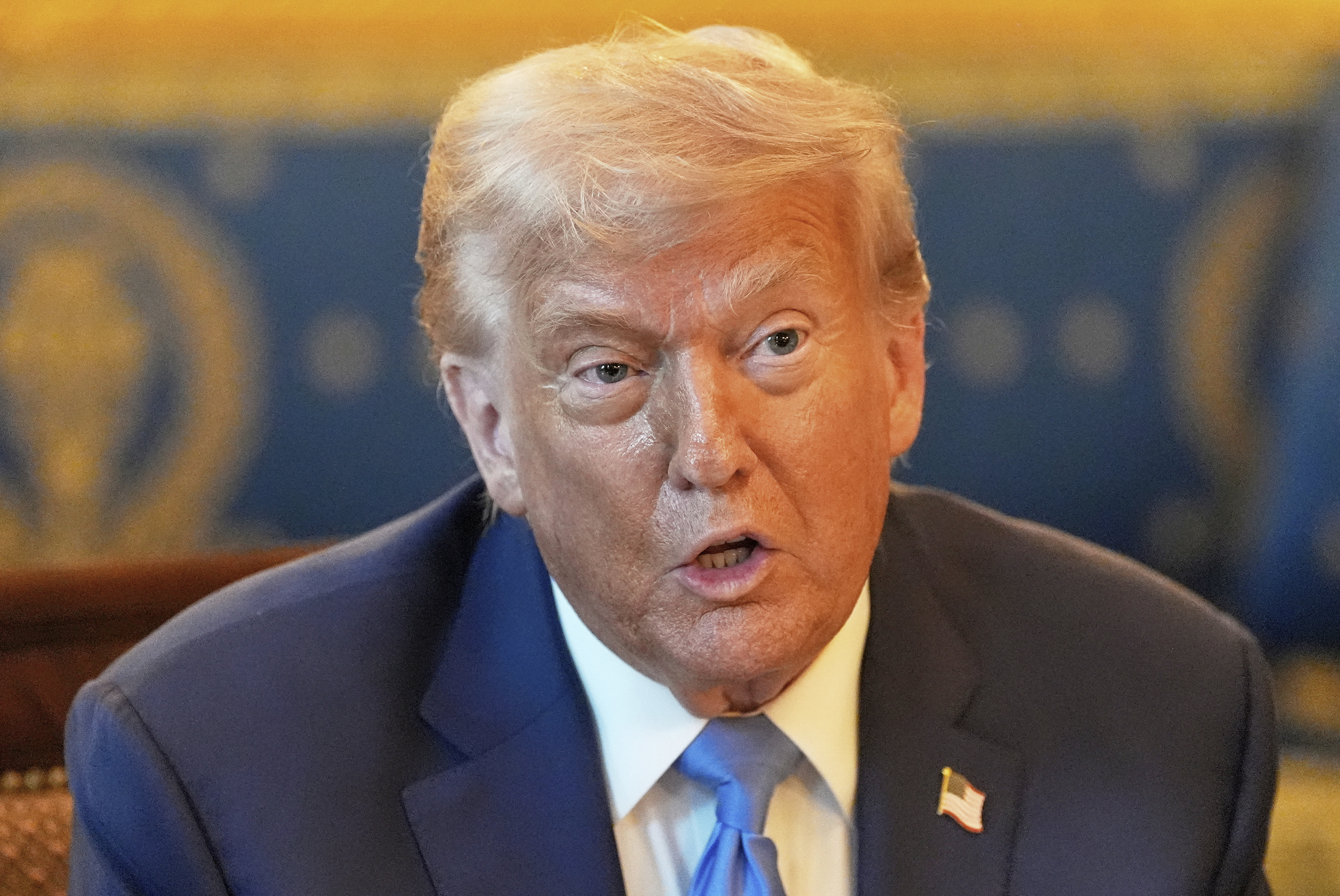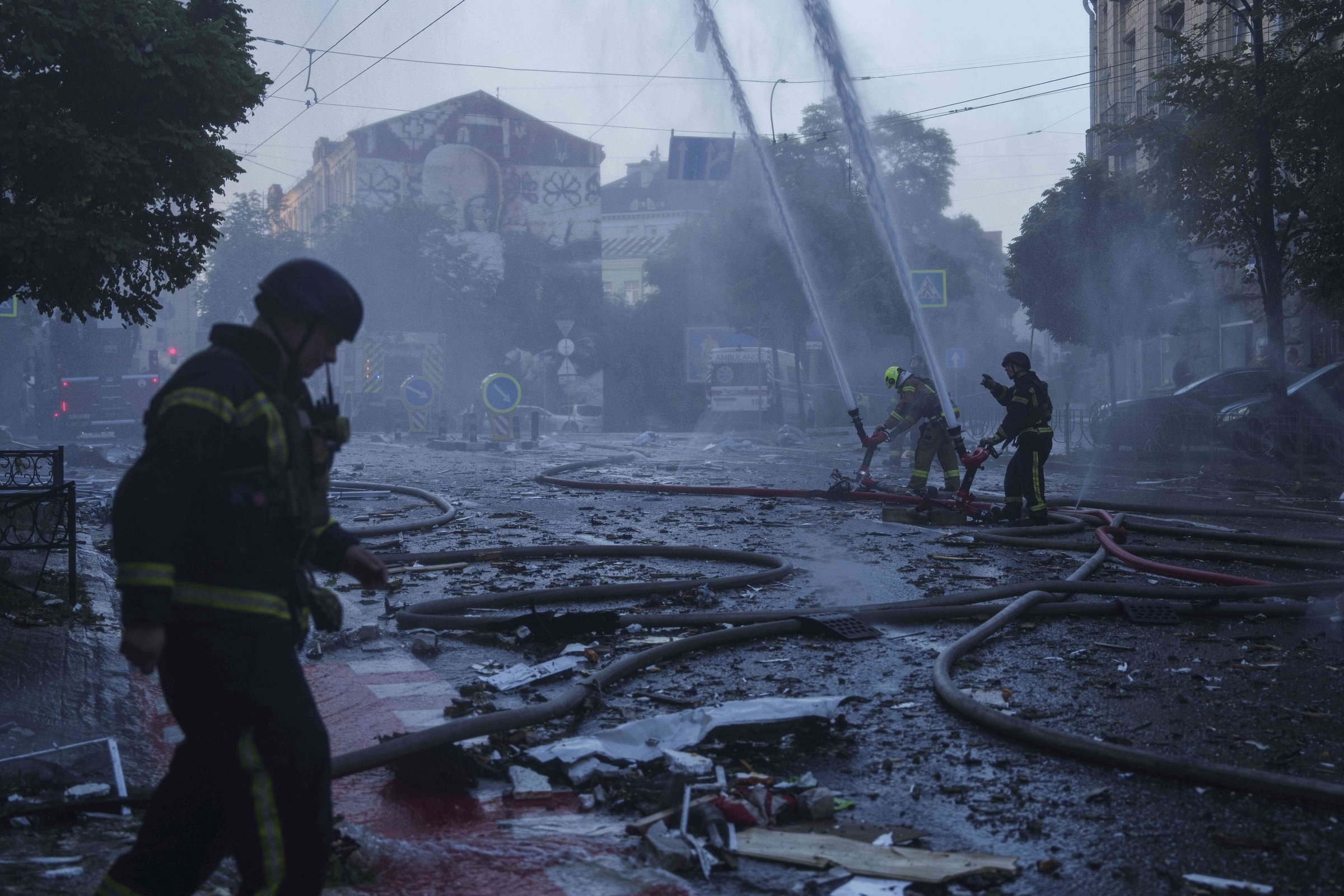Since President Donald Trump's return to the White House, European leaders have consistently urged him to take a stronger stance in support of Ukraine. In recent weeks, some have adopted a new approach in private conversations with the president, appealing to his appreciation for praise.
According to two European officials, these leaders have commended Trump for the US airstrikes that dealt a significant blow to Iran's nuclear program. They argued that the president could achieve similar results in Ukraine, not through military action, but by implementing new sanctions to cripple Russia's economy.
 |
US President Donald Trump in a meeting with Israeli Prime Minister Benjamin Netanyahu at the White House on 7/7. Photo: AP |
US President Donald Trump in a meeting with Israeli Prime Minister Benjamin Netanyahu at the White House on 7/7. Photo: AP
German Chancellor Friedrich Merz, along with the leaders of France, the UK, and Italy, have publicly told Trump that new US sanctions could compel Russian President Vladimir Putin to engage in serious negotiations to end the conflict. They argued that without such measures, Putin would continue escalating attacks to disrupt Ukraine's defenses.
Trump is showing signs of impatience with Russia after several unproductive dialogues between the two leaders. On 8/7, following a phone call in which Trump expressed his dissatisfaction, he announced he was "very seriously" considering supporting the "Sanctions on Russia 2025" bill in the Senate.
The bill proposes a 500% tax on imports from countries purchasing Russian oil, natural gas, petroleum products, or uranium, such as China, India, Brazil, and even some European Union (EU) members. It targets Russian officials, financial institutions, and entities trading with sanctioned Russian banks. The bill also calls for a ban on US purchases of Russian government bonds, as well as prohibiting the listing and trading of securities of Russian government-linked entities on US exchanges and investments in organizations or businesses owned or controlled by the Russian government.
Oil is the engine of Russia's economy and a crucial source of revenue for its campaign in Ukraine. Western leaders have sought to cut off this revenue stream since the conflict began in 2022, but so far, their efforts haven't met expectations.
The Senate bill, introduced by Republican Senator Lindsey Graham and Democratic Senator Richard Blumenthal, represents a new attempt to target the Russian oil sector. While the Senate has not yet voted on the bill, 84 out of 100 senators have expressed their support.
Some analysts believe that if passed, the bill could inflict a far greater blow than any previous sanctions against Russia.
"The bill's economic impact is quite clear and extensive," said Ben Harris, vice president and director of the Economic Studies Program at the Brookings Institution in Washington. Harris helped draft a previous measure to curb Russia's oil revenue under the administration of former President Joe Biden.
"Ultimately, there will be only three outcomes: the Russian military withdraws, the global energy market collapses, or a global economic recession caused by a sharp decline in world trade," Harris said. "There are no other outcomes, so the bill should be considered both bold and risky."
However, other analysts caution that it will take time for the bill's sanctions to have a strong enough impact to bring Putin to the negotiating table, while Trump could refuse to implement many of its measures.
Janis Kluge, a Russia expert at the German Institute for International and Security Affairs, predicts most of the sanctions in the bill are "unrealistic and will never be implemented."
"Its main achievement is to maintain the dialogue about new sanctions against Russia," he said. "However, it will not change the conflict, and European leaders should not have high expectations."
Russian officials appear unconcerned about the possibility of Trump supporting a new round of sanctions. The US president has not imposed any new sanctions on Russia related to the Ukraine conflict this year.
Russian Deputy Foreign Minister Sergei A. Ryabkov accused the senators supporting the bill of trying to "undermine the foundation for normal interaction between the US and Russia," emphasizing that they risk "harming the US itself."
He said Russia would need to analyze the potential impact of any potential sanctions, but with 30,000 restrictive measures already in place against Moscow, this "will not change the landscape" of the conflict.
Despite this, Senator Graham fostered optimism in Berlin and across Europe when he visited Chancellor Merz, the European Commission (EC) President, and other regional leaders last month to discuss the sanctions bill.
Shortly after, Merz flew to Washington and urged Trump to support the bill, stating in the Oval Office that the US president was "key" to ending the conflict in Ukraine.
Trump told reporters he had "a deadline in mind" for when he might support new sanctions, suggesting that US lawmakers would eventually follow his lead. On 10/7, Secretary of State Marco Rubio announced during a trip to Asia that the administration was working with lawmakers to shape the bill.
In recent weeks, Senators Graham and Blumenthal have tried to adjust the bill to make it more palatable to Trump. They plan to give him discretion in determining how and when to apply financial sanctions against Russia, among other changes.
 |
Rescue workers extinguish a fire at a heavily damaged house following a Russian attack in Kyiv, Ukraine, on 10/7. Photo: AP |
Rescue workers extinguish a fire at a heavily damaged house following a Russian attack in Kyiv, Ukraine, on 10/7. Photo: AP
Meanwhile, European leaders continue to press Trump on the issue, both publicly and privately. They are introducing their own new sanctions within the EC, as well as increasing aid to Ukraine.
EC President Ursula Von der Leyen announced on 10/7 the establishment of a new fund to support Ukraine's post-war reconstruction. She said the fund would be supported by the EC, France, Germany, Italy, and Poland. Its initial capital of around 250 million USD is only a fraction of the amount needed to rebuild Ukraine, which the World Bank estimates could exceed 500 billion USD.
European leaders have emphasized to Trump that stricter US sanctions would create leverage against Russia that no other country could achieve.
After the NATO summit in the Netherlands late last month, Chancellor Merz said he once again conveyed to Trump that he was best positioned to help Ukraine. The Chancellor said he urged Trump to build on the momentum from the US strikes on Iran, "not militarily, but in terms of trade policy."
However, Merz acknowledged that Trump remained unmoved. "The president is gradually forming his view on this issue, but in my opinion, that process is not yet complete," he said.
Vu Hoang (According to AFP, Reuters, AP)












